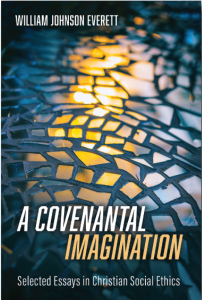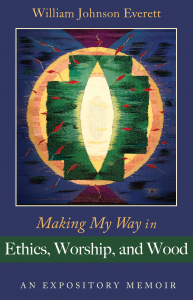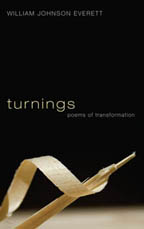It is July 4 – the American summer festival of extravagant patriotism, razzle-dazzle festivities, hot dogs, hamburgers, and (for many) beer. It is also a moment when the punditry and intelligentsia ponder this republic’s founding principles. Since most Americans can’t distinguish the Declaration of Independence (July 4, 1776) from the Constitution (drafted September 17, 1787, ratified June 21, 1788), our pondering of principles attends to both documents. Debates about the Constitution, however, are contentious, whereas the Declaration is simply an object of reverential, if usually ignorant, reference. Royal-watching is far more fun.
I wasn’t invited to participate in Christiane Amanpour’s TV panel Sunday morning about the Constitution, but I would like to comment on a matter missed or mangled by the media observers. It begins with the question of whether our courts should be guided “strictly” by the “original” and “literal” intent of the authors. I have commented on the fundamentalist view of this question before and find it specious rhetoric. Every judge interprets the words of the document to fit wider moral and legal judgments. The Heller case on the “right to keep and bear arms” is only one example. It is more instructive to remember that fundamental tensions exist in the very origins of our Constitution, since the Enlightenment founders tended to see it as a “contract,” as with Rousseau and the French social philosophers in his train, while federalists coming out of old Calvinist and Puritan traditions saw it in the light of covenant. While contractualist thought leads us to the legalistic literalism of today’s conservatives (who are descended from 18th century radicals), covenantal thought leads us to the more “organic” thought that sees it as a “living document.” This, of course, was a conservative position in the 18th century. However, the idea of a “living document” is not helpful. Rather, we need to remember that a covenant was a tissue of mutual promises among parties bound together in trust. The classic covenant entailed a “people” and their god within a land to which they also were bound in stewardship and trust. The covenant is a frame for living together in the uncertainties of history and human evil.
This is why the prophets of Israel, when they sought to call Israel back to its covenant, did not engage in legalistic literalisms. They vividly pointed out the broader actual impact of Israel’s behavior on the poor, the marginalized, and the land and animals the nation exploited in violation of the Sabbath. That is, they illuminated the concrete effects of public policy on the people as a whole and on their land. They were not, in short, the Pharisees of Jesus’ day, who sought to reform the people by stricter literal adherence to the law.
It seems to me that when we remember this prophetic line of covenantal thought leading to our Constitution (It’s a long story, read Daniel Elazar’s writings.), we would do well to take its Preamble as seriously as the authors did. It is the Preamble setting out the purposes of the Constitution that needs to regulate its interpretation. The authors knew what they were doing. The Preamble is the core of the covenant they were constructing. It is the lens through which to see its meaning. It reflects what John Calvin had already laid out in his Institutes (Bk. II.8.8) two centuries earlier – that the meaning of a law must be derived from its purpose. The Preamble is that statement of purpose. It might be good to recall it today in the face of those who would invoke it to tear down the public policies that seek to enact its vision:
“We the people of the United States, in order to form a more perfect union, establish justice, insure domestic tranquility, provide for the common defense, promote the general welfare, and secure the blessings of liberty to ourselves and our posterity, do ordain and establish this Constitution for the United States of America.”
Put on those glasses while you watch the fireworks!







 Red Clay, Blood River
Red Clay, Blood River
I hope those Smoky Mountain vistas aren’t too obscured by pollution. Virginia Blue Ridge has quite the problem with this.
You cite Calvin that “the meaning of a law must be derived from its purpose.” The difference, between contract & covenant.
From Donald Lutz I began to appreciate this and am reminded of a lesson I gave to civic educators and high school students which may be of interest to your readers.
We explored the clauses of the Preamble, each one posted on a large sheet of butcher paper. With markers in hand participants wrote specific government agencies which, for example, “Promote the General Welfare”. After gathered in small groups, they examined one assigned Article or group of Amendments with the question, “What in this part of the Constitution fulfills the goals of the Preamble?” (Simpler — “do you see anything similar to items in our previous list of agencies that appears in here?”
Some items listed in Art II Sec 8, like copyrights and post offices which may have not been considered before are realized to support the public good.
Then we notice topics that were written down in the first exercise — Air Force, Welfare, Education, the Environment Policy or Health Care — which are clearly not in the text.
How did the federal government have the authority to form those program? How do policies change if the text doesn’t? (custom, court precedent, amendment, legislation) Should our government look different than what the text authorizes? Should we stick to the text or perhaps write a new, updated one?
Hope you enjoyed this little lesson plan which often sparked deep reflection.
Good to hear about your interest in this area and your perseverance! While I am no longer doing original research in this area, I continue to live within the orbit of these ideas and traditions. Over the next year or so I hope to bring all of my significant writings in this area on line in digital form (and free), so drop by from time to time.
The Smokies continue to be a special place, but the ecology is precarious and we have to struggle against the depredations of “development.” Thanks for your comment!
I’ve just stumbled on your website. I’d searched out your web presence several times in the past decade after reading God’s Federal Republic and the Religion, Federalism and Public life. Though not a scholar I’m into Elazar and Berman/Witte Emory Law folks and Tocqueville. Read McCoy and Baker on Bullinger and Zwingli as the Fountainhead of Federalism.
It’s nice to see you and your wife have settled into a beautiful part of the country. My great grandfather from Belarus settled in Asheville and raised 6 children there and my mother spent summers there. Family in Hendersonville and Weaverville.
That’s a long intro to say this short piece on contractual literalists and covenantal originalists says in several sentences what I’ve been stumbling toward for years. Thanks for your clarity and continuing to offer thoughts on contemporary affairs.
The historical context, Bill, is most enlightening (as always). So much junk thinking goes under the name of religion or Christianity these days, or junk historical revisionism, your history lesson gives a great breath of fresh air in the midst of the plethora of pundits. Tim Bachmeyer
Great article. I also liked the one you wrote last week about climate change.
Thanks, Bill. The reference to Calvin was very helpful.
Stephen
Hopefully the N.C. Legislature will rise from the rancor of partisan politics in the current debate about redistricting and, in the words of the Preamble to the U S.Costitution,
“promote the general welfare” of our people.